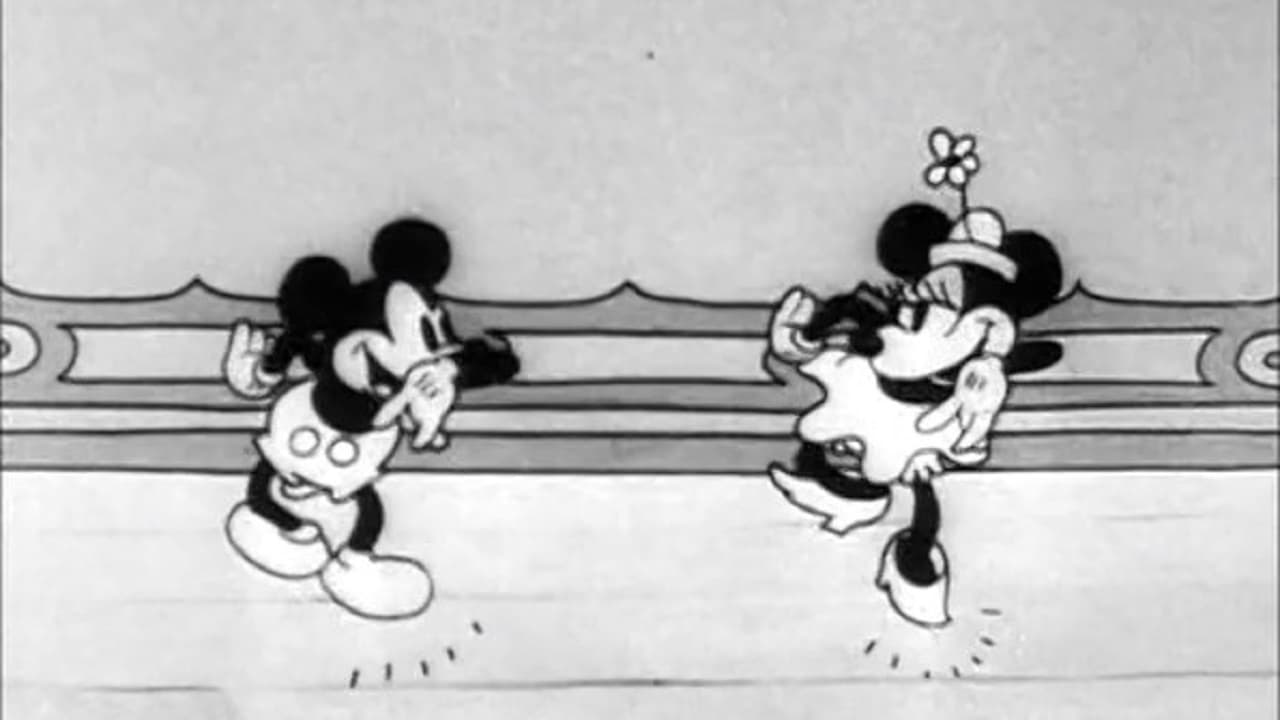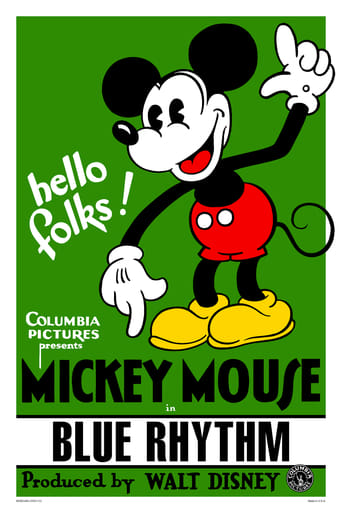

This is an early Disney cartoon featuring Mickey Mouse. There will be spoilers ahead:This is basically a plot less wonder. You can do that in a short less than eight minutes long if other elements are strong enough and that's most certainly the case here. The opening has a beautiful visual effect involving shadow and perspective and it just gets better from there.This short is essentially about the music. It starts out classical and then becomes a blues cartoon. There are some of the standard gags involving a piano early on and then Minnie comes on to sing, even a little scatting once or twice.Then Mickey begins to conduct an orchestra. The various members of the orchestra get showcased to greater or lesser degrees, with a few gags done here and there. Clarabelle Cow on the bass fiddle, Horace Horsecollar on drums and a proto-Pluto playing the slide trombone. There's a somewhat notable gag involving the slide on the trombone at one point. Mickey plays the clarinet towards the end before a slam-bang finish.This short is available on the Mickey Mouse In Black and White Disney Treasures DVD set and it's well worth seeking out. Most recommended.
... View MoreGranted Blue Rhythm is not laugh-a-minute and it doesn't have the strongest story in the world(with the middle act not that much different from other Disney concert shorts, except being in a different setting), but none of that matters- plus neither are always bad points- because Blue Rhythm is a joy everywhere else. The obvious high point is the music, which is in all fairness though always one of the consistent best things about the Disney shorts, it was nice to hear a style that was different from popular songs and pieces that is usually heard. It was a very jazz and swing style which gave the short so much lively energy and is so catchy it makes you want to get up and dance. The animation is the other big high-point, the black and white is remarkably crisp and Mickey and the other characters have much fluidity in their movements. Mickey's facial expressions from having the time of his life to irritation is so well done we actually feel his emotions with him. But the visual standout was at the very beginning with the large silhouette of Mickey that later scaled down, a very clever piece of animation and one of the most effective openings to a Disney short in my view. As said, Blue Rhythm is not exactly laugh-a-minute but it is still immensely entertaining, a standout being Mickey's interaction with the piano with his expressions even funnier and the use of seeing everybody in the band and having short close-up sequences was a clever move. All the characters work well individually and together, particularly Mickey(not surprising considering that he's the lead and has shown that he is the perfect lead character for a concert short), but it was also really interesting to see Pluto in a more human-like role to how he usually is. In conclusion, lots of fun and looks and sounds wonderful. 9/10 Bethany Cox
... View MoreA Walt Disney MICKEY MOUSE Cartoon.Mickey's musicians swing a real BLUE RHYTHM as they perform a wacky version of "St. Louis Blues."There's no dialogue in this black & white film...and hardly any plot. We do learn a bit more about the musical talents of the gang: Mickey plays clarinet; Horace Horsecollar, the saxophone; Clarabelle Cow, the bass; and even Pluto plays a mean trombone.Walt Disney (1901-1966) was always intrigued by drawings. As a lad in Marceline, Missouri, he sketched farm animals on scraps of paper; later, as an ambulance driver in France during the First World War, he drew figures on the sides of his vehicle. Back in Kansas City, along with artist Ub Iwerks, Walt developed a primitive animation studio that provided animated commercials and tiny cartoons for the local movie theaters. Always the innovator, his ALICE IN CARTOONLAND series broke ground in placing a live figure in a cartoon universe. Business reversals sent Disney & Iwerks to Hollywood in 1923, where Walt's older brother Roy became his lifelong business manager & counselor. When a mildly successful series with Oswald The Lucky Rabbit was snatched away by the distributor, the character of Mickey Mouse sprung into Walt's imagination, ensuring Disney's immortality. The happy arrival of sound technology made Mickey's screen debut, STEAMBOAT WILLIE (1928), a tremendous audience success with its use of synchronized music. The SILLY SYMPHONIES soon appeared, and Walt's growing crew of marvelously talented animators were quickly conquering new territory with full color, illusions of depth and radical advancements in personality development, an arena in which Walt's genius was unbeatable. Mickey's feisty, naughty behavior had captured millions of fans, but he was soon to be joined by other animated companions: temperamental Donald Duck, intellectually-challenged Goofy and energetic Pluto. All this was in preparation for Walt's grandest dream - feature length animated films. Against a blizzard of doomsayers, Walt persevered and over the next decades delighted children of all ages with the adventures of Snow White, Pinocchio, Dumbo, Bambi & Peter Pan. Walt never forgot that his fortunes were all started by a mouse, or that simplicity of message and lots of hard work always pay off.
... View More